Crunchy, naturally sweet, and incredibly versatile, carrots are among the most widely eaten vegetables in the world. Whether you’re dipping them into hummus, tossing them into a salad, or roasting them for dinner, these bright orange veggies have earned their healthy reputation. But when it comes to weight loss specifically, do carrots really deliver?
Absolutely. They’re low in calories but high in water and fiber, which can help you feel full without adding much to your daily total. On top of that, they’re loaded with nutrients like vitamin A that support overall health while you work toward your goals. Still, like any food, how you include them in your routine makes a difference.
Let’s take a closer look at why carrots can be a smart addition to your weight-loss plan, what to keep in mind, and simple ways to enjoy them.
✅ Quick answer
Yes, carrots can definitely support your weight-loss goals. They’re low in calories and high in water and fiber—two factors that help you feel satisfied and may naturally reduce how much you eat overall. At around 41 calories per 100 grams (about one medium carrot), you can enjoy a generous serving without worrying about going over your calorie target.
🚀 Weight‑loss benefits
- They’re low in calories. Carrots give you a lot of volume for very few calories, which means you can fill your plate—and your stomach—without overdoing it. That makes them an easy go-to when you’re aiming for a sustainable calorie deficit, the foundation of any healthy weight-loss plan.
- They’re high in fiber and water. With over 88% water and a good dose of fiber, carrots help slow digestion and keep you feeling satisfied. This one-two punch supports fullness between meals and can help curb the urge to snack on less nutritious options.
- They’re packed with nutrients. Carrots are best known for their beta-carotene, a precursor to vitamin A that supports healthy vision, skin, and immune function. They also offer smaller amounts of other vitamins and minerals that help your body stay nourished and energized as you work toward your goals.
⚠️ Things to be mindful of:
- Juicing removes the fiber. When carrots are juiced, most of their fiber is left behind—and that fiber is one of their biggest weight-loss perks. Without it, your body absorbs the natural sugars more quickly, which can cause blood sugar spikes. If you love carrot juice, enjoy it in moderation, but eating whole carrots (or blending them into smoothies) gives you all the fiber and fullness benefits.
- They can cause bloating for some people. If you have a sensitive digestive system or IBS, the high fiber content in carrots might lead to a little extra gas or bloating. Try adding them gradually so your body can adjust—it often makes a big difference in comfort.
Rx weight loss, the right way, with Noom
Get access to prescription weight loss medication with Noom.🥗 Nutrients in carrots (per 100 g/about 1 medium carrot)
| Nutrient | Amount | % RDA* |
|---|---|---|
| Calories | 41 calories | 2% |
| Protein | 0.9 g | 2% |
| Total carbs | 9.6 g | 3% |
| Fiber | 2.8 g | 10% |
| Sugars | 4.7 g | — |
| Total fat | 0.2 g | <1% |
| – Saturated fat | 0.04 g | <1% |
| – Monounsaturated fat | 0.01 g | — |
| – Polyunsaturated fat | 0.12 g | — |
| Omega-3 | 0 g | — |
| Omega-6 | 115 mg | — |
A quick look at the numbers shows why carrots are such a staple in many healthy-eating plans. One medium carrot (about 100 grams) has only 41 calories—meaning you get a lot of crunch and satisfaction for very little energy.
The 9.6 grams of carbohydrates are mostly complex, with nearly a third coming from fiber. That fiber helps slow digestion, supports gut health, and keeps you feeling full longer. The rest of the carbs come from natural sugars, which give carrots their mild sweetness—a nice way to satisfy a craving without reaching for dessert.
Carrots are also naturally low in fat and protein, which makes them a great way to bulk up meals with volume, color, and nutrients without adding many calories.
*Recommended dietary allowance (RDA) is defined as the average daily amount of nutrients needed to meet the requirements of nearly all healthy people in a specific group.
💊 Vitamins & minerals in carrots (per 100 g)
| Vitamin/Mineral | Amount | % RDA* |
|---|---|---|
| Vitamin A | 835 μg | 93% |
| Vitamin K | 13.2 μg | 11% |
| Vitamin B6 | 0.14 mg | 8% |
| Potassium | 320 mg | 7% |
| Niacin (B3) | 0.98 mg | 6% |
| Manganese | 0.14 mg | 6% |
| Thiamin (B1) | 0.07 mg | 6% |
| Copper | 0.05 mg | 5% |
| Riboflavin (B2) | 0.06 mg | 5% |
| Folate (B9) | 19 μg | 5% |
| Vitamin E | 0.66 mg | 4% |
| Phosphorus | 35 mg | 3% |
| Magnesium | 12 mg | 3% |
| Sodium | 69 mg | 3% |
| Calcium | 33 mg | 3% |
| Zinc | 0.24 mg | 2% |
| Iron | 0.3 mg | 2% |
| Selenium | 0.1 μg | <1% |
Carrots are famous for their sky-high vitamin A content—and the numbers back it up. Just 100 grams (about one medium carrot) delivers 93% of your daily needs, mostly from beta-carotene, an antioxidant that supports healthy eyes, skin, and immune function.
But the benefits don’t stop there. Carrots also offer vitamin K for bone health and blood clotting, plus vitamin B6 and potassium to support energy metabolism and heart health. You’ll also find small but meaningful amounts of several B vitamins and trace minerals like manganese and copper, which play important roles in everything from cell repair to collagen production.
While carrots aren’t a major source of every nutrient, they add a little bit of almost everything—making them a simple way to round out your diet while keeping calories low.
🔍 Nutrient breakdown
Glycemic index (GI) of carrots
Glycemic index: 16-35 (Low to Medium)
💡 Tip: The GI of carrots increases slightly when cooked.
Are carrots high in protein?
❌ No: Carrots contain just 0.9 g of protein per 100 g (about one medium carrot). This is a very small amount and doesn’t contribute significantly to daily protein needs. To build a balanced, satisfying meal, it’s essential to pair carrots with a protein-rich food.
Better protein alternatives: Grilled chicken breast | Lentils | Greek yogurt
Are carrots high in fiber?
✔️ Yes: Carrots provide 2.8 g of fiber per 100 g, which is 10% of the recommended daily intake. This fiber is a mix of soluble and insoluble types, a major reason they’re so filling. It aids digestion, helps stabilize blood sugar, and supports a healthy gut microbiome.
💡 Tip: Eat the peel! Much of a carrot’s fiber is located in or just under the skin, so give them a good scrub and skip the peeler.
Are carrots low in carbs?
❌ No: A 100 g serving has 9.6 g of carbs, which isn’t considered low-carb compared to leafy greens like spinach or lettuce. However, these are complex carbohydrates and natural sugars coupled with fiber, making them a healthy energy source. They can be included in moderation on a reduced-carb diet but are generally avoided on strict keto.
💡 Tip: If you’re on a low-carb diet, stick to a half-cup serving and focus on non-starchy vegetables like broccoli, cauliflower, or zucchini for most of your veggie intake.
Are carrots gluten-free?
✔️ Yes: Carrots are a root vegetable and are naturally 100% gluten-free. This makes them a safe and healthy choice for individuals with celiac disease or gluten sensitivity. They’re a versatile ingredient in gluten-free cooking and baking.
Are carrots good for fat loss?
✔️ Yes: Due to their low-calorie and high-fiber profile, carrots are genuinely helpful for fat loss. They help create a calorie deficit by promoting fullness and reducing the chances of overeating. Their nutrient density also supports your metabolism and overall health during a fat-loss phase.
💡 Tip: Pair raw carrots with a small amount of healthy fat, like hummus or guacamole, to improve the absorption of fat-soluble vitamin A and create a more satisfying snack.
🍽️ Diet compatibility: Which diets include carrots?
| Diet | ✅Yes / ❌No | Why |
|---|---|---|
| Keto | ❌ | Carrots contain too many net carbs (around 7 g per 100 g) to fit comfortably into a strict ketogenic diet. While a very small amount might be permissible, they’re generally avoided. |
| Paleo | ✅ | As a natural, unprocessed root vegetable, carrots are fully compliant with the paleo diet. |
| Mediterranean | ✅ | Carrots are a staple in the Mediterranean diet, which is rich in fruits, vegetables, and whole foods. |
| Vegan | ✅ | Being a plant-based food, carrots are a fundamental part of any vegan or vegetarian diet. |
| Gluten‑free | ✅ | Carrots are naturally free of gluten, making them an excellent and safe choice for anyone on a gluten-free diet. |
Carrots prove to be a remarkably versatile vegetable, fitting seamlessly into many popular eating patterns. Their whole-food, plant-based nature makes them a perfect match for Mediterranean, paleo, vegan, and gluten-free lifestyles. In these diets, they’re celebrated for their nutrient density and adaptability in various dishes, from fresh salads to hearty, cooked meals.
The primary exception is the ketogenic diet. Due to its strict limitation on carbohydrates, the natural sugars in carrots push them over the acceptable threshold for most keto adherents. While a few slivers might not break ketosis, they’re generally replaced with lower-carb options like leafy greens, cauliflower, or bell peppers to maintain the diet’s metabolic state.
🌟 Are carrots healthy? What are the health benefits
Metabolic health: Are carrots good for your metabolism?
- Boosts metabolism? ❌ No – While carrots support overall metabolic health, they don’t directly “boost” your metabolic rate in a significant way. Their fiber content helps regulate digestion and energy release, which is beneficial for a stable metabolism. However, no single food can dramatically speed up your metabolism.
- Improves insulin sensitivity? ✔️ Yes – The soluble fiber in carrots helps slow the absorption of sugar into the bloodstream. This prevents sharp spikes in blood glucose and insulin after a meal. Consistent intake of high-fiber vegetables can improve insulin sensitivity over time.
- Effect on fat storage? Helps prevent – Because they’re low in calories and high in fiber, carrots help you feel full, reducing the risk of overeating and excess calorie storage. A diet rich in such foods supports a healthy body weight and indirectly helps prevent the accumulation of body fat.
Cholesterol impact: Do carrots affect cholesterol levels?
- Does it lower LDL (bad) cholesterol? ✔️ Yes – The soluble fiber in carrots, particularly pectin, can help lower LDL cholesterol levels. This fiber binds with bile acids in the digestive system and helps excrete them from the body. The liver then has to pull cholesterol from the blood to make more bile acids, effectively lowering blood cholesterol.
- Does it raise HDL (good) cholesterol? ❌ Limited data – There’s no strong scientific evidence to suggest that eating carrots directly raises HDL cholesterol. However, adopting a diet rich in vegetables like carrots is part of a heart-healthy lifestyle that can support overall cholesterol balance.
- Overall impact on heart health? Carrots are excellent for heart health. The combination of cholesterol-lowering fiber, blood pressure-regulating potassium, and powerful antioxidants makes them a heart-protective food. Regular consumption is associated with a lower risk of cardiovascular disease.
💡 Tip: Roasting carrots with a drizzle of olive oil can enhance their flavor and heart-healthy benefits while making the fat-soluble nutrients more bioavailable.
Can I eat carrots for a calorie deficit?
✔️ Yes, with confidence: Carrots are an ideal food for a calorie deficit. Their low calorie count (41 calories per 100 g) and high water and fiber content allow you to eat a large, filling volume of food for a small caloric cost. This makes managing hunger much easier while reducing overall energy intake.
💡 Tip: Start your meal with a carrot and celery stick appetizer to help reduce hunger before the main course arrives.
Are carrots rich in antioxidants?
✔️ Yes: Carrots are packed with antioxidants, most notably beta-carotene (which the body converts to vitamin A), but also alpha-carotene, lutein, and zeaxanthin. These compounds fight oxidative stress and cellular damage caused by free radicals. This protection is linked to a reduced risk of chronic diseases and supports healthy aging.
Do carrots support gut health?
✔️ Yes: The fiber in carrots acts as a prebiotic, which means it feeds the beneficial bacteria in your gut. A thriving gut microbiome is linked to improved immunity, better mood, and overall health.
Do carrots support digestion?
Positive: The insoluble fiber in carrots adds bulk to stool, which helps it pass more easily through the digestive tract. This can help prevent constipation and maintain regular bowel movements. However, for some people with IBS, a sudden increase in fiber can cause gas or bloating, so it’s best to increase intake gradually.
Do carrots help you feel satiated and less hungry?
Moderate to High: The combination of high fiber and high water content makes carrots quite filling. The physical act of chewing their crunchy texture also contributes to feelings of satisfaction and fullness.
Satiety Level: Moderate
💡 Tip: Pair carrots with a protein source like hummus, Greek yogurt dip, or a handful of nuts for a snack that provides even longer-lasting satiety.
Do carrots help with nighttime cravings?
✔️ Yes: If you crave something crunchy and sweet at night, carrots are a perfect low-calorie choice. They can satisfy that desire without the sugar and calories of cookies or chips, making them an ideal nighttime snack.
💡 Tip: Keep pre-washed baby carrots in your fridge for easy access when cravings strike.
Do carrots help reduce inflammation?
✔️ Yes: Carrots contain antioxidants like beta-carotene and other carotenoids that have anti-inflammatory properties. A diet rich in colorful vegetables is associated with lower levels of systemic inflammation.
Are carrots beneficial for brain health?
✔️ Yes, limited benefits: The antioxidants in carrots help protect the brain from oxidative stress, which can contribute to cognitive decline. Some studies suggest that carotenoids may have a positive impact on cognitive function, though more research is needed.
Can carrots improve skin and hair health?
✔️ Yes: Vitamin A is essential for the growth and repair of skin tissues, and a deficiency can lead to dry skin. The beta-carotene in carrots helps protect the skin from sun damage and can contribute to a healthy glow.
Can carrots help balance hormones?
Limited evidence: While not a direct hormone regulator, the nutrients in carrots support overall health, including the endocrine system. The fiber can also help with the excretion of excess estrogen, contributing to better hormonal balance.
💡 Tip: A balanced diet with plenty of vegetables, adequate protein, and healthy fats is the best approach for maintaining hormonal health.
🍽️ Best ways to eat carrots for weight loss
- Raw – Eating carrots raw is arguably the best way to maximize their weight-loss benefits. This method preserves their water and fiber content perfectly, leading to the highest level of satiety. The crunch requires more chewing, which can slow down eating and increase satisfaction.
- Steamed or roasted – Lightly steaming or roasting carrots without oil or with a minimal amount of healthy fat (like olive oil spray) is another excellent option. Cooking can actually make some nutrients, like beta-carotene, more bioavailable to your body. These methods soften the carrot without adding calories.
- Avoid fried, candied, or drenched in dressing – Skip preparations that add significant calories, sugar, or unhealthy fats. This includes deep-frying, glazing with sugar or honey, or smothering them in creamy, high-calorie dressings. These preparations add calories and turn a healthy vegetable into a less optimal choice.
🍏 Best alternatives & comparisons (per 100 g)
| Food | Calories | Carbs | Fiber | Protein | Fat |
|---|---|---|---|---|---|
| Carrots | 41 | 9.6 g | 2.8 g | 0.9 g | 0.2 g |
| Celery | 14 | 3.0 g | 1.6 g | 0.7 g | 0.2 g |
| Bell pepper (red) | 26 | 6.0 g | 2.1 g | 1.0 g | 0.3 g |
| Cucumber | 15 | 3.6 g | 0.5 g | 0.7 g | 0.1 g |
| Broccoli | 34 | 6.6 g | 2.6 g | 2.8 g | 0.4 g |
| Sweet potato | 86 | 20.1 g | 3.0 g | 1.6 g | 0.1 g |
When compared to other common vegetables, carrots hold their own as a balanced, low-calorie option. They have slightly more calories and carbohydrates than non-starchy vegetables like celery and cucumber, which have even more water. Carrots offer more beta-carotene and a sweeter flavor that many people find more satisfying.
Compared to bell peppers and broccoli, carrots are similar in fiber content but offer less protein than broccoli and less vitamin C than bell peppers. Each vegetable brings unique nutritional strengths to the table. Sweet potatoes, another root vegetable, are very healthy but higher in calories and carbohydrates. For pure low-calorie volume, celery and cucumber are winners, but carrots provide a better balance of fiber, nutrients, and satisfying sweetness.
Frequently asked questions about carrots and weight loss
Can I eat carrots every day?
Absolutely! Carrots are safe to eat daily and can be a healthy part of your regular diet. They provide valuable nutrients and fiber without contributing many calories. Just make sure you’re eating a variety of vegetables to get a full range of nutrients.
Will eating too many carrots turn my skin orange?
Yes, this can actually happen, though it’s harmless. Eating excessive amounts of carrots (or other foods high in beta-carotene) can lead to a condition called carotenemia, which causes a yellowish-orange tint to the skin. It’s temporary and goes away when you reduce your intake. For most people eating normal amounts, this isn’t a concern.
Are baby carrots as healthy as regular carrots?
Yes, baby carrots are just as nutritious as regular carrots. They’re typically just regular carrots that have been cut and peeled into smaller pieces. The main difference is that they may have slightly less fiber since the peel has been removed, but the nutritional difference is minimal.
Should I eat carrots before or after a workout?
Carrots can work either way, but they’re particularly useful as a pre-workout snack when paired with protein. Their natural sugars provide quick energy, while the fiber helps sustain it. Post-workout, you’ll want to focus more on protein and carbs together for recovery, so carrots can be part of that meal, but shouldn’t be the main component.
Are cooked carrots less healthy than raw carrots?
Not necessarily—they’re just different. Cooking carrots actually increases the bioavailability of beta-carotene, making it easier for your body to absorb. However, cooking does raise their glycemic index slightly. Both raw and cooked carrots are healthy choices; raw carrots are slightly better for blood sugar control, while cooked carrots may offer better nutrient absorption.
Can carrots help with late-night snacking?
Yes! Carrots are an excellent choice for late-night snacking because they’re low in calories, satisfyingly crunchy, and slightly sweet. They can help curb cravings without derailing your weight loss efforts. Keep some pre-cut carrots in your fridge for easy access.
Do I need to worry about the sugar in carrots if I’m trying to lose weight?
For most people, no. The natural sugars in carrots are packaged with fiber and water, which slows their absorption and prevents blood sugar spikes. Unless you have diabetes or are drinking large amounts of carrot juice (which removes the fiber), the sugar in whole carrots is unlikely to cause any issues with weight loss.
🧠 The bottom line: Carrots are a great choice for weight loss.
Carrots are absolutely a fantastic choice for weight loss. At just 41 calories per medium carrot (100 grams), they offer impressive volume and crunch without putting a dent in your calorie budget. Their high fiber and water content work together to keep you feeling satisfied, making it easier to stick to your goals without constantly battling hunger.
What makes carrots particularly valuable is that they’re not just low in calories—they’re genuinely nutritious. You’re getting over 90% of your daily vitamin A needs in a single serving, along with other important vitamins and minerals that support your health while you’re losing weight. This nutrient density means you can feel good about eating them regularly, whether raw as a snack, roasted as a side dish, or grated into salads for extra bulk.
The key to making carrots work for you is keeping them simple. Enjoy them raw or lightly cooked with minimal added fats or sugars. Pair them with protein-rich foods like hummus, chicken, or beans to create balanced meals that keep you full even longer. Remember, sustainable weight loss isn’t about perfection—it’s about finding nutritious foods you actually enjoy eating. If carrots fit that bill for you, make them a regular part of your routine.
📖 Scientific evidence
- Antioxidant-rich fruits and vegetables can boost heart health [Advances in Nutrition, 2013]: Researchers found that eating colorful foods like carrots, which are high in carotenoids, can raise antioxidant levels in the body and support a healthy heart.
- Eating raw carrots may help protect against cancer [Nutrients, 2023]: A large study found that people who regularly ate raw carrots had a lower risk of developing lung cancer, suggesting that carrots may offer protective health benefits beyond weight loss.
- Carrots and carrot by-products may support heart and liver health [International Journal of Food Properties, 2024]: A review found that carrots and their fiber-rich by-products contain compounds that may help lower cholesterol, balance blood sugar, and protect the heart and liver.
- Lycopene and beta-carotene support several aspects of health [Food Science & Nutrition, 2024]: A review found that carrots (rich in beta-carotene) and similar vegetables help boost antioxidants and may support health across many areas, including vision, immunity, and chronic disease prevention.
Why you can trust us
At Noom, we’re committed to providing health information that’s grounded in reliable science and expert review. Our content is created with the support of qualified professionals and based on well-established research from trusted medical and scientific organizations. Learn more about the experts behind our content on our Health Expert Team page.

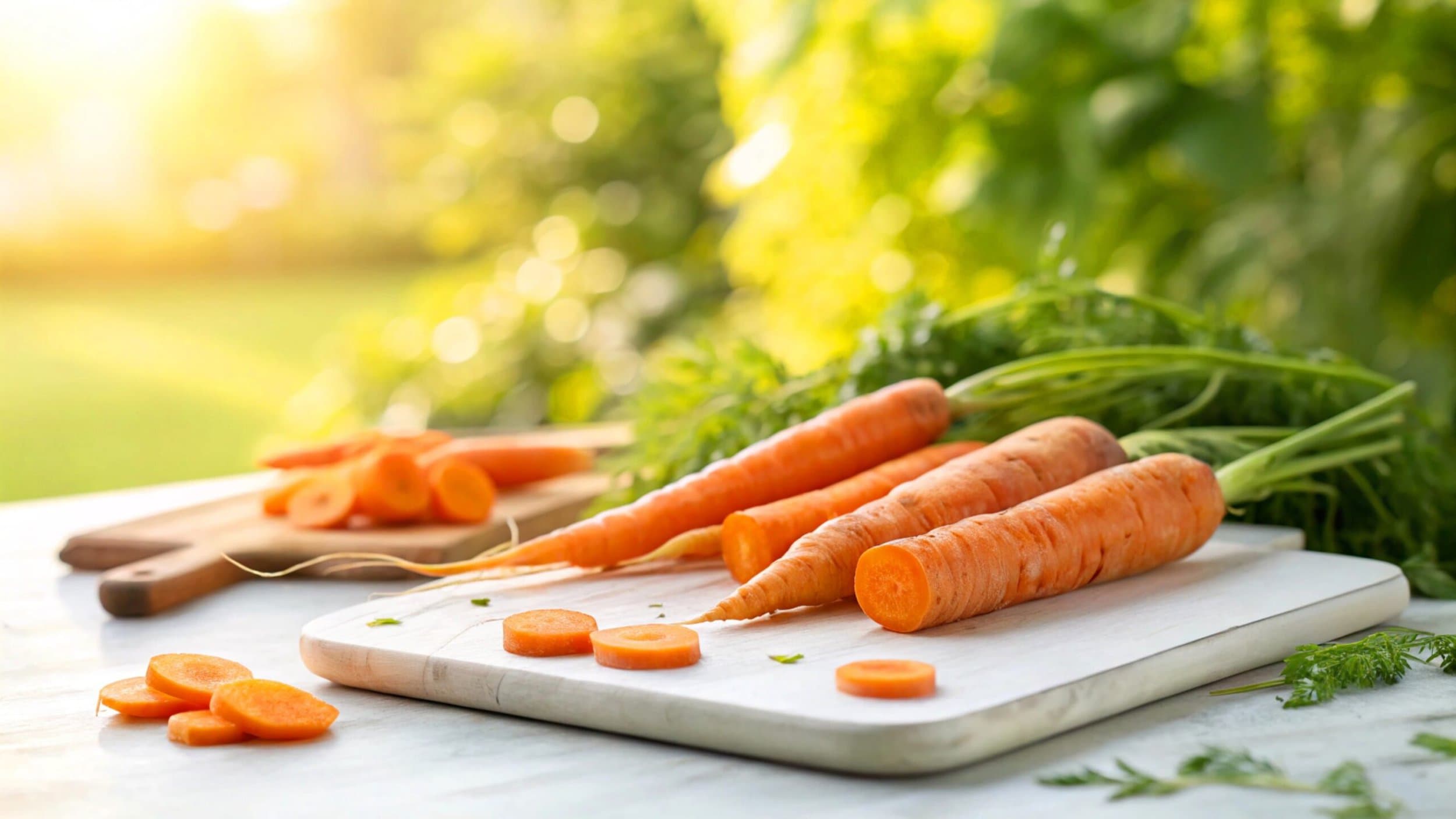







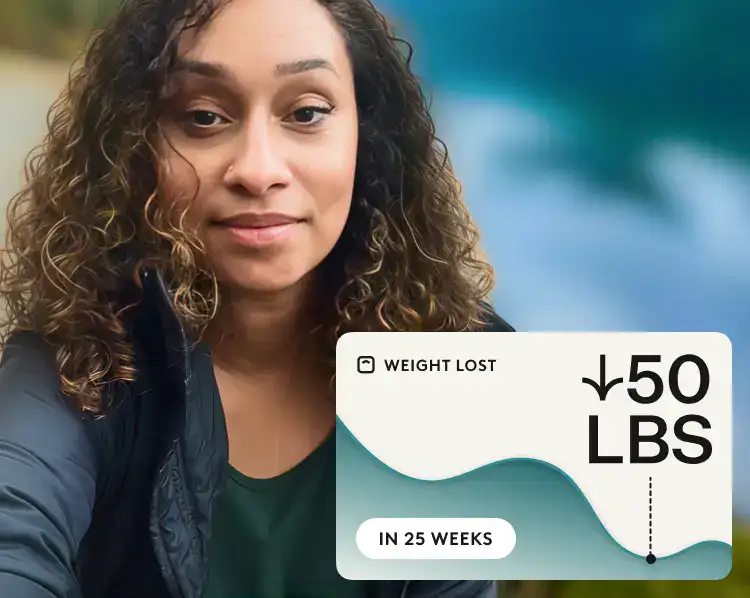
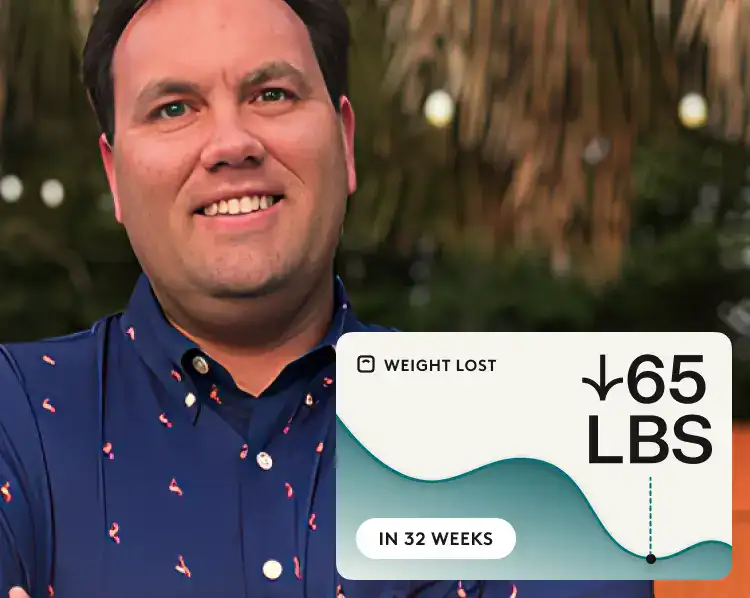
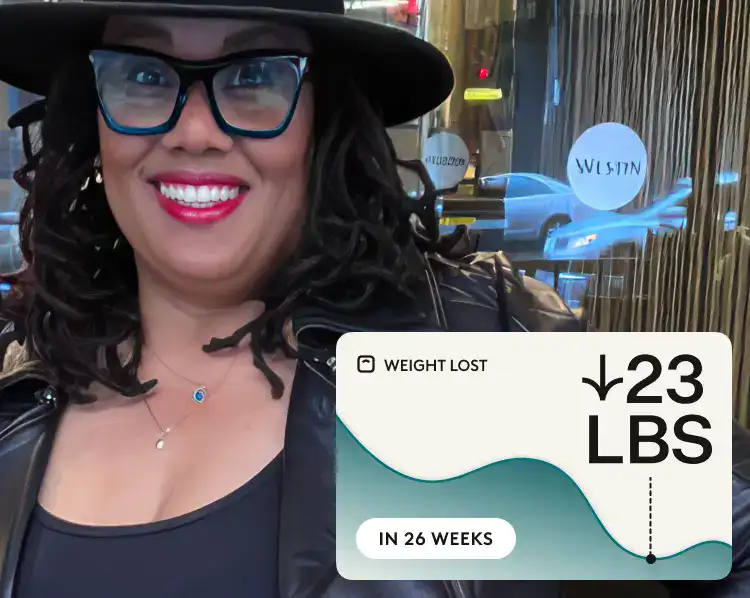
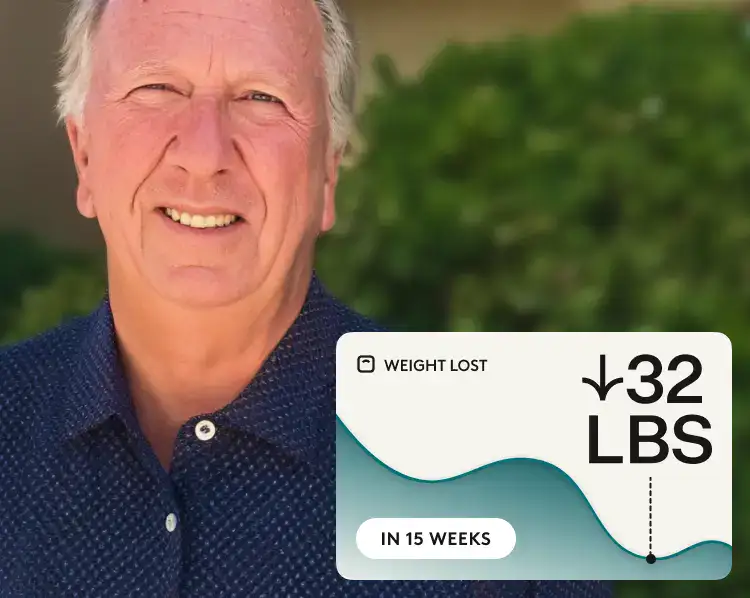
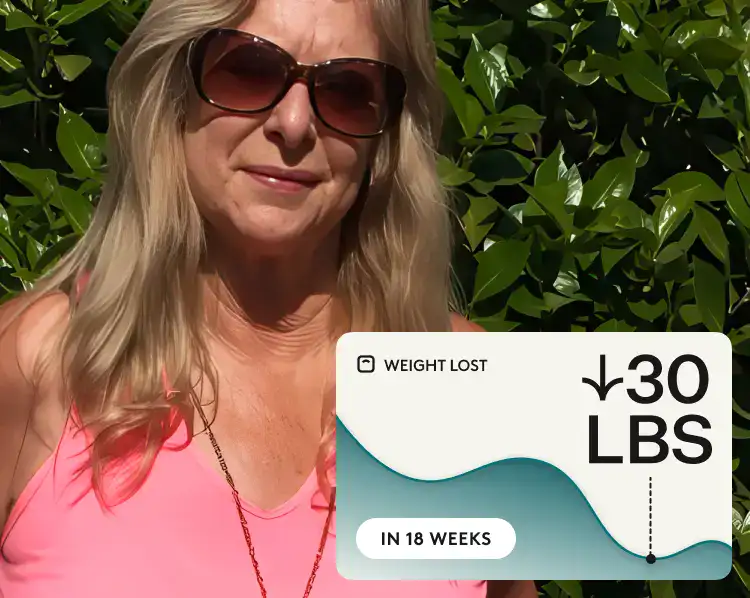
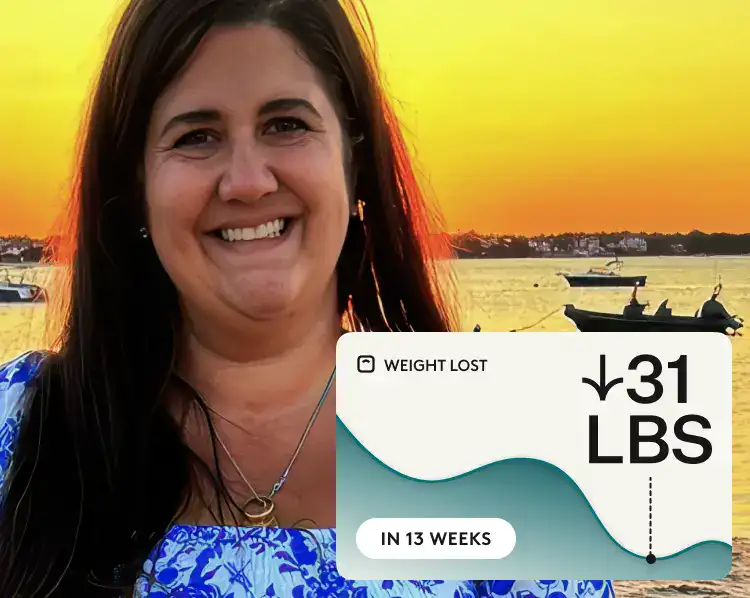

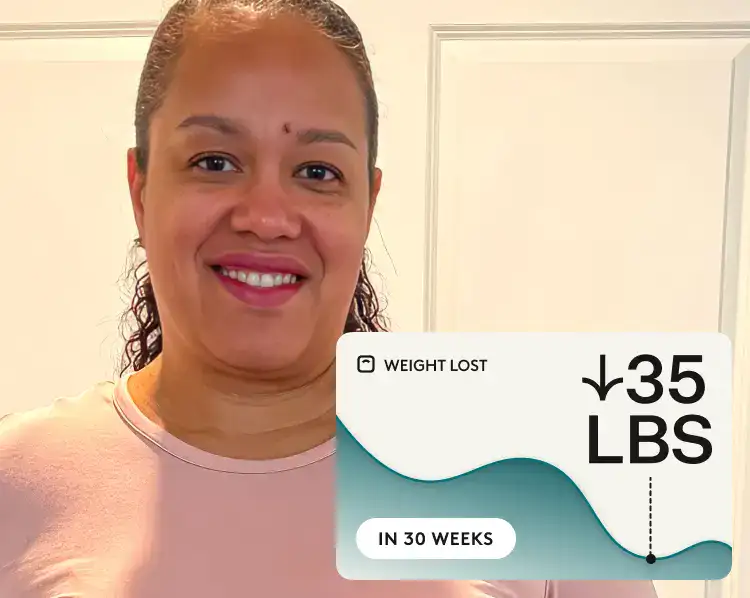
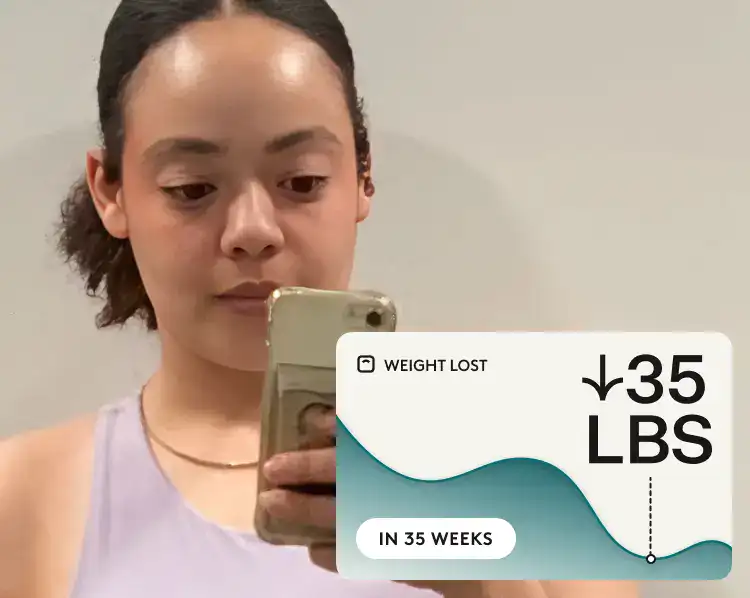


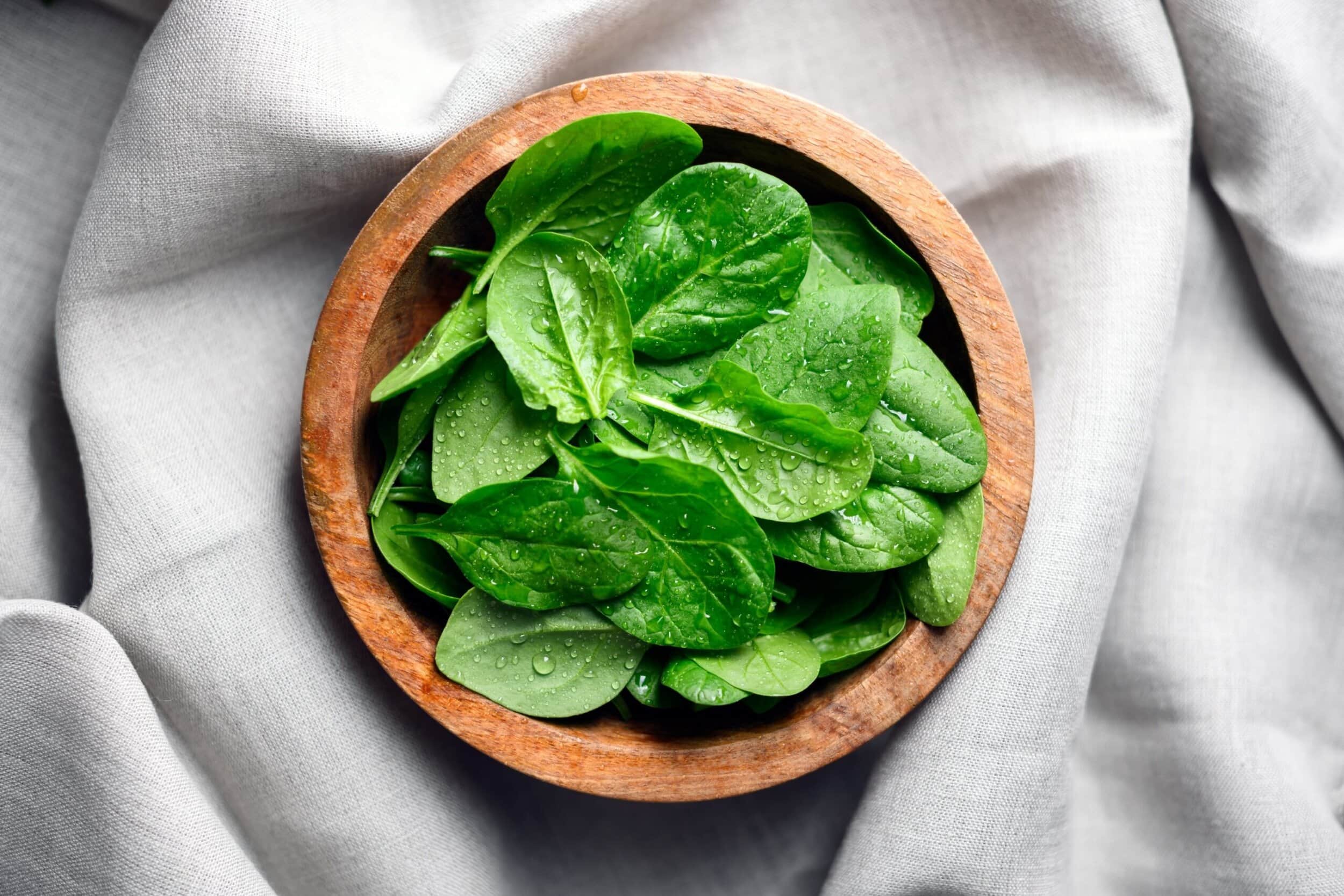
 Noom Team
Noom Team
 Melissa Kay
Melissa Kay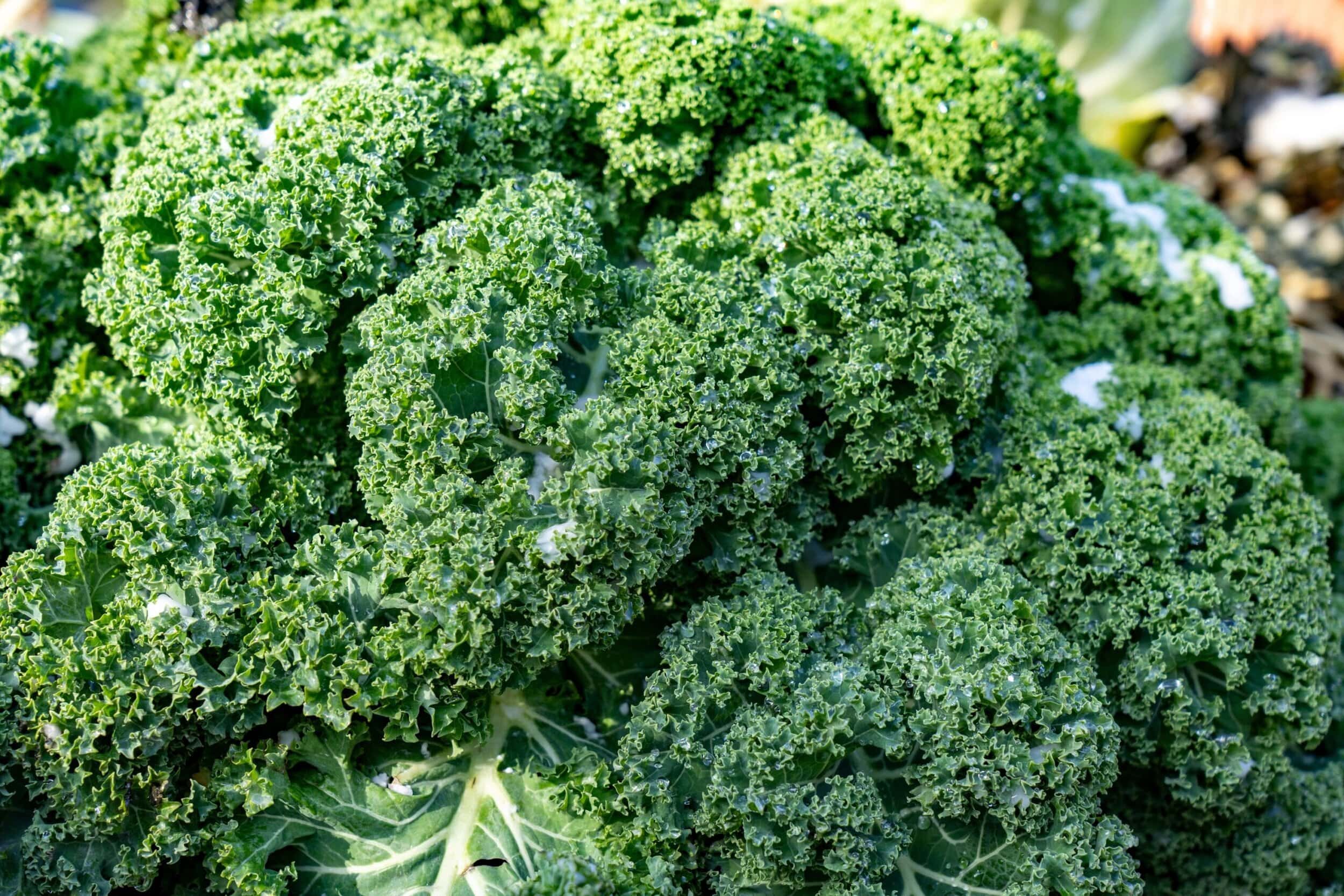
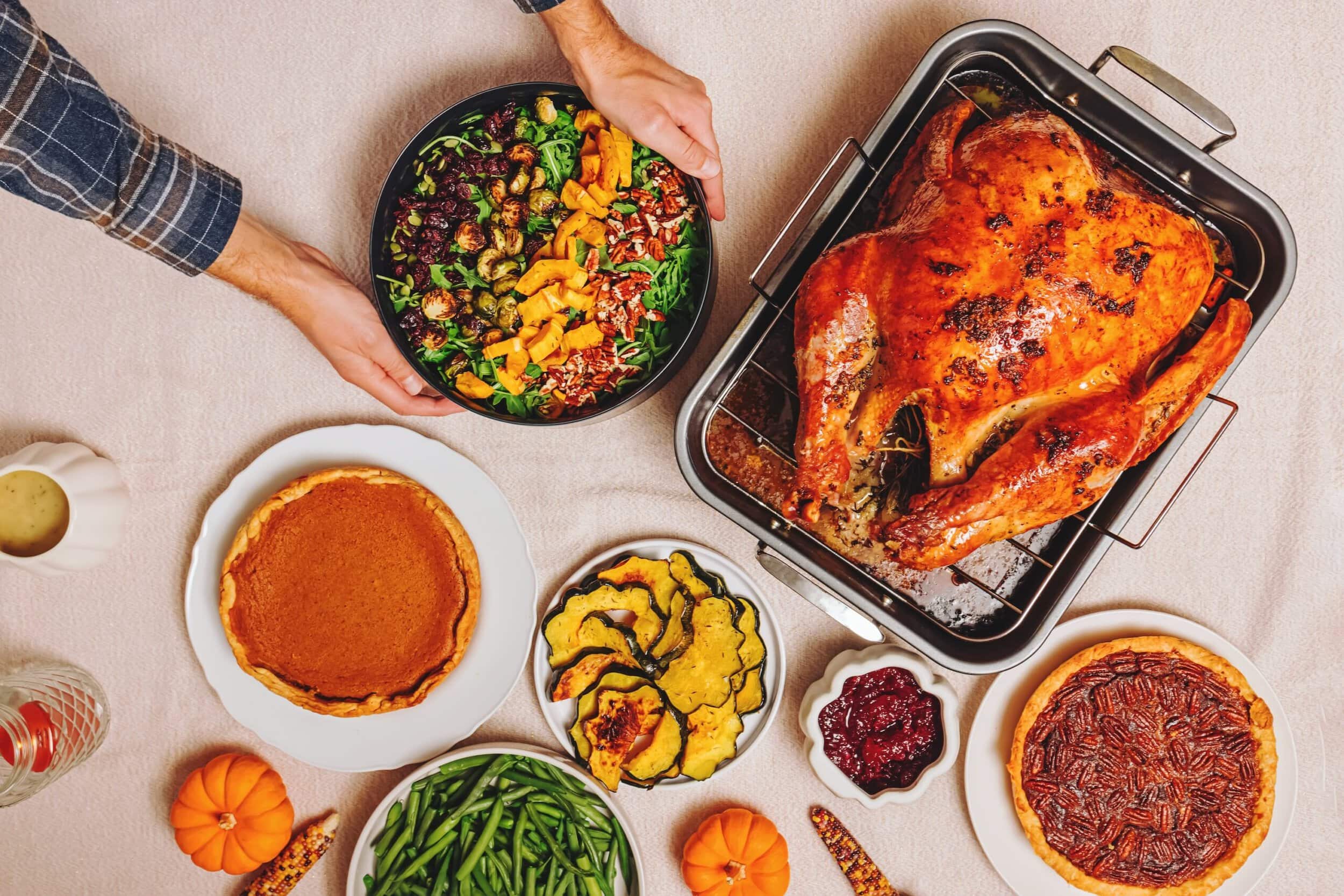
 Shoshana Fishbein
Shoshana Fishbein
